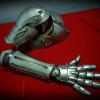It happened on Tuesday.
The title is niether clickbait, nor exaggeration.
I wrote an extensive post here, but I hoped to deliver to a slightly wider audience with a more summarised post.
After the share price had collapsed by 40% in just a few days to a shatteringly low share price on Monday, which valued the company at half its Net Asset Value (assets minus liabilities) the CEO immediatedly issued a tranche of shares through a private placement, increasing the number outstanding by an incredible 150%. By issuing 20 million shares at $2.50, the CEO, Anavarin Ghosh effectively gave to the investor Cowen 60% of the company for nothing. Here's how:
Of the $50 million the investors paid to the company, Cowen immediately own $30 million of it in equity. Also $45 million was raised 2 months earlier of which too they own 60%, so another 27 million. The company have likely spent $10 million over those two months, so that $95 million may be presently represented as $85 million (though they had plenty of cash elsewhere) of which those investors own $50 million in equity, realisable if there were a takeover tomorrow.
Thus for their $50 million investment Cowen received a $50 million equity rebate and 60% of the company. As such they paid zero for that 60% of the company. So 60% of the NAV (excluding the funds raised through dilution) and 60% of the pipeline - 60% of the eye drug with exceptional phase 2 results two months ago, UBX1325.
The CEO has taken from shareholders, who have funded the research and operations, some for years, 60% of their holdings and given it away. It is, in fact, actually worse than this:
The shareholder base which accounted for 100% of the company the day before the first dilution in August, about three trading days after the phase 2 results, now own around 22% of the company - this has happened in a little over two months. The CEO has increased the shares outstanding by 350% over this period. If there had been no dilution, by the company's own August statement, they would be funded through Q1 next year: "$64.5 million in cash, cash equivalents and marketable securities, providing runway through Q1 2023.". So still 5 months of capital, I suspect it may have been for longer based on recent burn rate, resultings from the company's reduced size, but things change of course.
Ths company has been de facto bought out. The public offering in August was not a public offeirng, the offering was closed the day after the prospectus was released with the funds fully raised, it is highly likely to be the same investors one way or another.
For that 78% loss of ownership those August shareholders have received in equity around $20 million. The NAV of the company at the end of June, 6 weeks before the first dilution, was around 40 million - 80% of that is $32 million. They haven't even been paid the NAV equivalent. 80% of pipeline, the reason why investors are there have been sold from under their feet, without any measure of consent, in a deal that valued said pipeline, despite its recent success, at zero.
It is hard to say what the company was worth the day the phase 2 results were released, the share price is always wrong - on Tuesday it was valued at $35 million, half the present dilution enhanced NAV. During the darkest time in its history at the beginning of 2021 it was 500 million, when it had barely ever been in a worse state.
On the few days following the phase 2 results the best day in the company's history, Unity was heavily traded on a market cap between 80 and 120 million. It is essentially this company in its pre-diluted state the CEO sold 60% for absolutely nothing on Tuesday and around 80% for 20 million.
One way of trying to put some thought on value is to consider only the 6 quarters from January 2021 to June 2022 as the company was in recovery phase. From recollection the company spent 90 million, 60 million on R&D, most of which was on progressing UBX1325. This was shareholder funded obviously, paying for the trials and the CEO's salary. Given the success of the trials and a much superior better than standard care treatment, those investors fronting up the money, taking the risks would expect a healthy return on that investment. The NAV was around 40 million at the time, they had cash more than debt and that cash would give them 'runway through to Q1 2023'. And probably a couple of months beyond.
So investors spent 60 million mainly on the drug over 6 quarters which resulted in considerable success, it too validated the science of senolytics which had taken a hammering over UBX0101. $200 million wouldn't seem an unreasonable figure for the company at this point. $160 million isn't that great a return for investors funding the company for 90 million over the previous 6 quarters when the prospect of failure was very real.
Whatever the value assigned to the company on readout day, 60% of that company was sold for zero, 80 percent for $20 million over the last couple of months. By my modest estimate those investors have had $140 million stolen. They owned 100% of the celebrated drug a couple of weeks into August, now they own 22% and those investors were given less than the NAV of the company for their trouble. Shareholders were not asked for their approval of this sell off, of 80% of the company. I dare say they wouldn't have given it. It is an investment scandal, an absolute fraud.
Investors in Unity Bio paid the price for the company's failure of its flagship arthritis drug UBX0101, and have now paid an equal price for the success of its flagship replacement UBX1325.
Edited by ambivalent, 28 October 2022 - 12:55 PM.











































